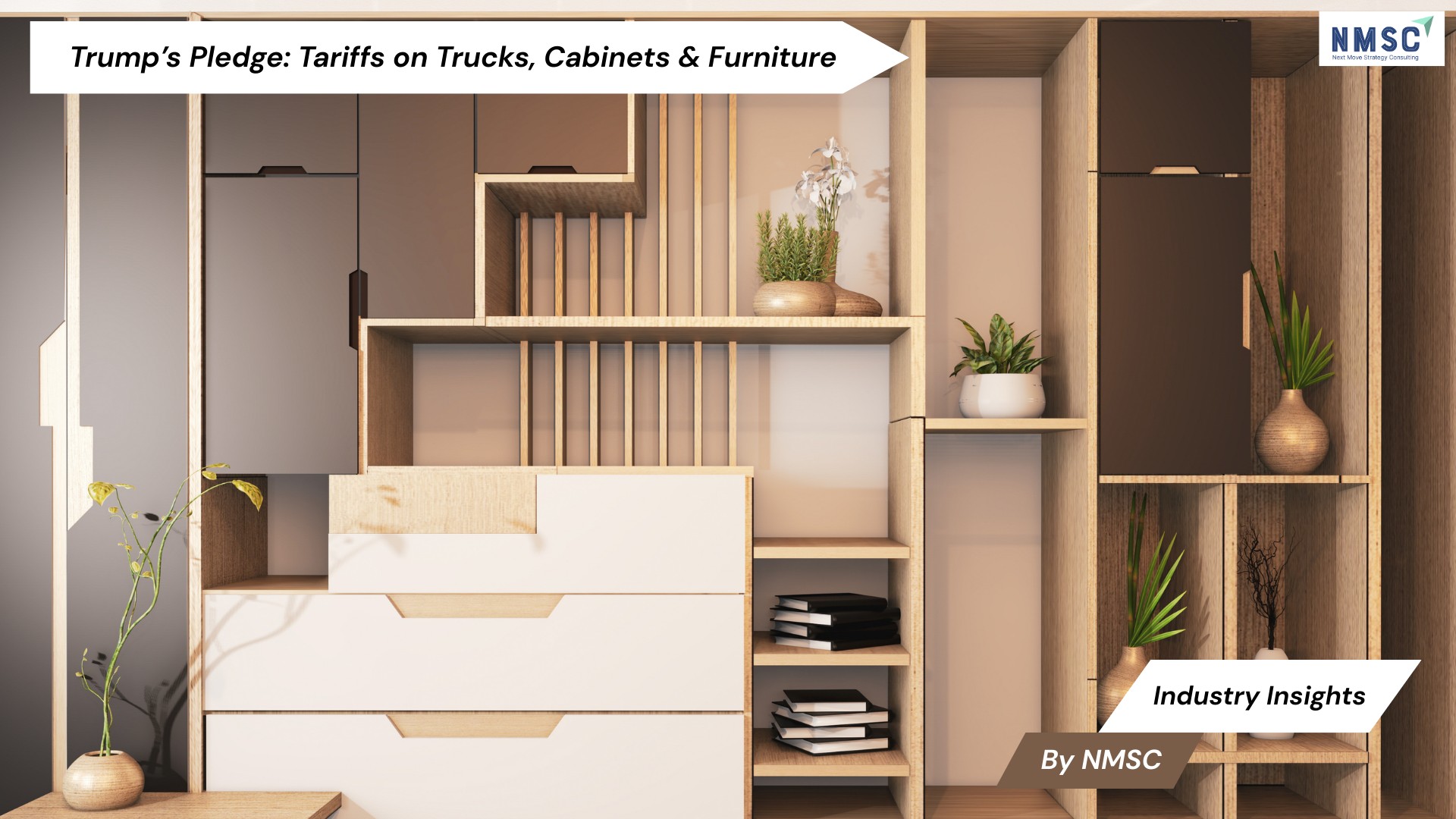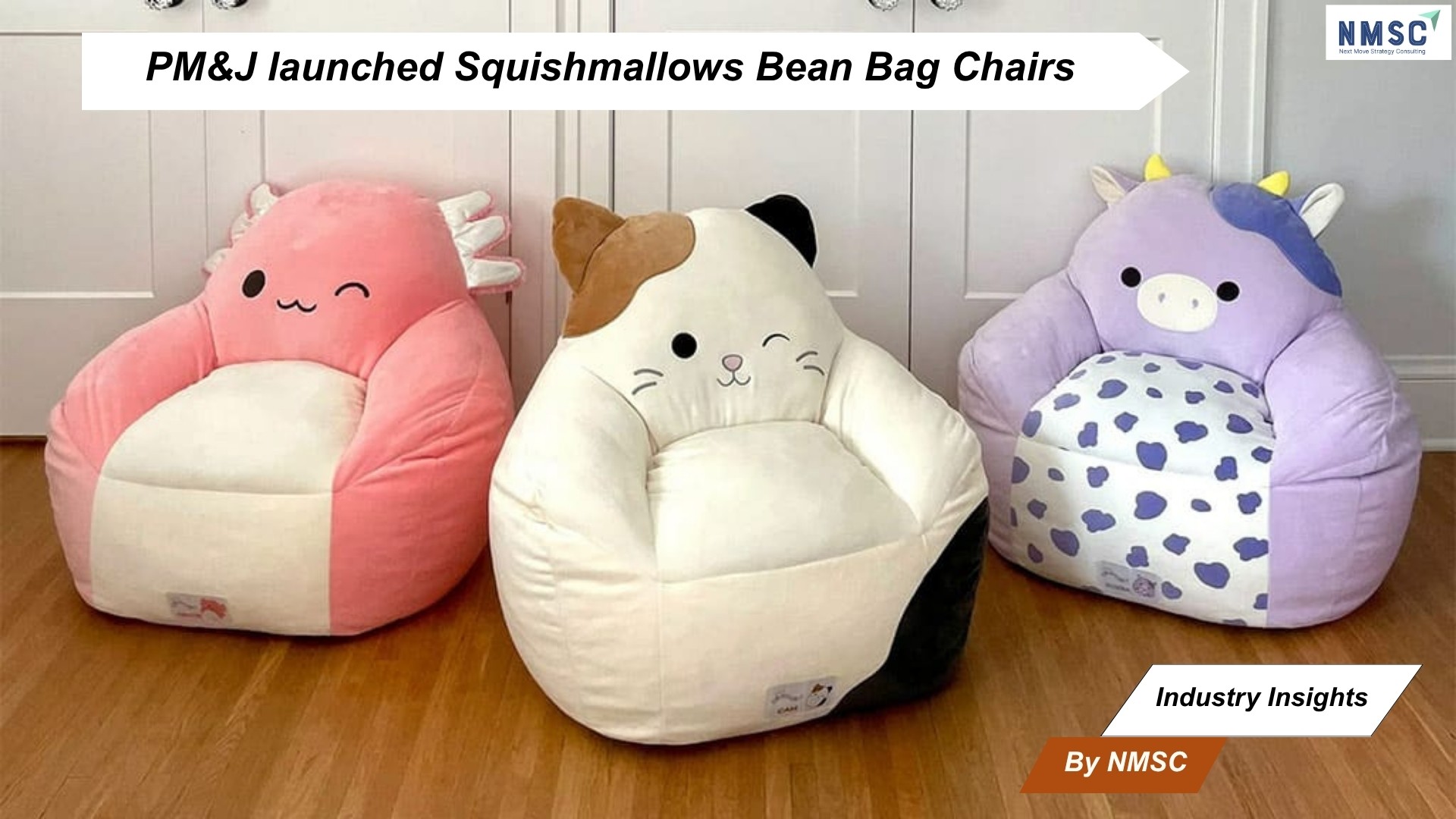Trump’s Pledge: Tariffs on Trucks, Cabinets & Furniture
Published: 2025-09-26

Industry Insights from Next Move Strategy Consulting
In a campaign promise to fortify domestic production, Republican presidential candidate Donald Trump has proposed targeted tariffs on key imported goods, including heavy trucks, kitchen cabinets, bathroom vanities, and upholstered furniture. Set to take effect on October 1, 2025, these measures leverage Section 232 investigations to address national security concerns tied to foreign subsidies and unfair practices, marking a strategic escalation in protecting US supply chains.
A Strategic Pivot Toward Trade Protectionism
For years, American manufacturers have grappled with the influx of low-cost imports that undercut local competitiveness. Trump's proposal, shared via Truth Social, would impose a 25% tariff on heavy trucks (over 10,000 pounds) and parts, a 50% tariff on kitchen cabinets and bathroom vanities, and a 30% tariff on upholstered furniture. The proposed tariffs are based on Trump's stated intention to leverage Section 232 authorities, following his citation of an April Commerce probe that highlighted foreign dominance in these sectors through predatory trade tactics.
“President Trump’s Section 232 tariffs on imported heavy trucks are a huge win for American workers and great US manufacturers like Peterbilt, Kenworth, Freightliner, and Mack,” stated Nick Iacovella, President of the Coalition for a Prosperous America. “This action will strengthen this vital sector and protect it from unfair foreign competition.”
Key Tariff Details at a Glance:
-
25% on heavy trucks and components, effective October 1, 2025, to counter subsidized imports.
-
50% on kitchen cabinets and bathroom vanities, targeting vulnerabilities in home goods supply chain.
-
30% on upholstered furniture, aimed at revitalizing domestic upholstery production.
-
Grounded in Section 232 of the Trade Expansion Act, focusing on goods essential to national security.
-
Announced via social media, with probes underscoring threats from foreign trade practices.
Resilient Framework for Domestic Industries
The proposed tariffs would create a protective framework intended to strengthen US manufacturing against unfair foreign competition. By imposing higher costs on critical imports like heavy trucks, kitchen cabinets, and bathroom vanities, they aim to bolster domestic production, from truck assembly to furniture manufacturing. Grounded in a planned use of Section 232, these measures would aim to address trade disruptions from foreign subsidies and predatory practices, promoting economic security. The stated goal of the proposal is to support job growth and reduce reliance on foreign suppliers, thereby enhancing the strength of vital US industries.
Impact on the Furniture Market: Next Move Strategy Consulting’s View
The tariffs proposed by candidate Trump on kitchen cabinets, bathroom vanities, and upholstered furniture could significantly influence the furniture market in US if enacted. The 50% tariff on cabinets and vanities, critical elements in residential remodeling, is likely to increase costs for consumers, driving demand for domestically produced alternatives and encouraging supply chain diversification. Similarly, the 30% tariff on upholstered furniture may elevate retail prices, particularly in an environment of ongoing inflation, potentially challenging mid-tier retailers while offering US manufacturers a competitive edge through improved pricing power. This policy signals a broader shift toward localized sourcing, with early signs pointing to increased domestic production in the coming months. However, importers may face tighter margins and could resort to stockpiling goods ahead of the October 1, 2025, implementation to mitigate tariff impacts.
Industry Response and Strategic Outlook
Manufacturing advocates have expressed strong support for the proposed tariffs, with Nick Iacovella of the Coalition for a Prosperous America calling them a “huge win for American workers and US manufacturers” like Peterbilt and Mack, protecting against unfair foreign competition. The tariffs counter subsidies and predatory practices, aiming to bolster US industries and self-sufficiency in producing trucks, cabinets, and vanities. Trump's campaign frames these measures as enhancing the nation’s industrial base for long-term resilience against global trade challenges.
Redefining the American Trade Frontier
As global competition intensifies, Candidate Trump's tariff proposal would represent a bold step in economic defense, prioritizing the protection of domestic industries. Intended to be grounded in Section 232 investigations, the measures are designed to target unfair trade practices and foreign subsidies, which he argues would equip US manufacturers with tools to compete against evolving trade threats.
With this proposal, Trump has reaffirmed his commitment to strengthening US industries if elected, saying it would ensure they can withstand global pressures and maintain operational strength.
Source: Hindustan Times
Prepared by: Next Move Strategy Consulting
About the Author
 Nitrishna Sonowal is an SEO Executive and Content Writer with 3+ years of experience in digital marketing. She combines analytical insights with creative storytelling to deliver impactful digital solutions. Beyond work, she enjoys dancing, baking, and exploring new places.
Nitrishna Sonowal is an SEO Executive and Content Writer with 3+ years of experience in digital marketing. She combines analytical insights with creative storytelling to deliver impactful digital solutions. Beyond work, she enjoys dancing, baking, and exploring new places.
About the Reviewer
 Sanyukta Deb is a skilled Content Writer and Digital Marketing Team Leader, specializing in online visibility strategies and data-driven campaigns. She excels at creating audience-focused content that boosts brand presence and engagement, while also pursuing creative projects and design interests.
Sanyukta Deb is a skilled Content Writer and Digital Marketing Team Leader, specializing in online visibility strategies and data-driven campaigns. She excels at creating audience-focused content that boosts brand presence and engagement, while also pursuing creative projects and design interests.














Add Comment